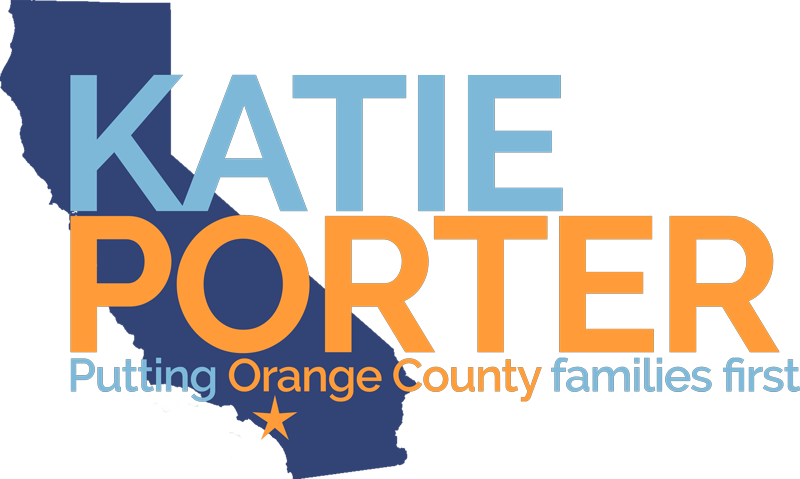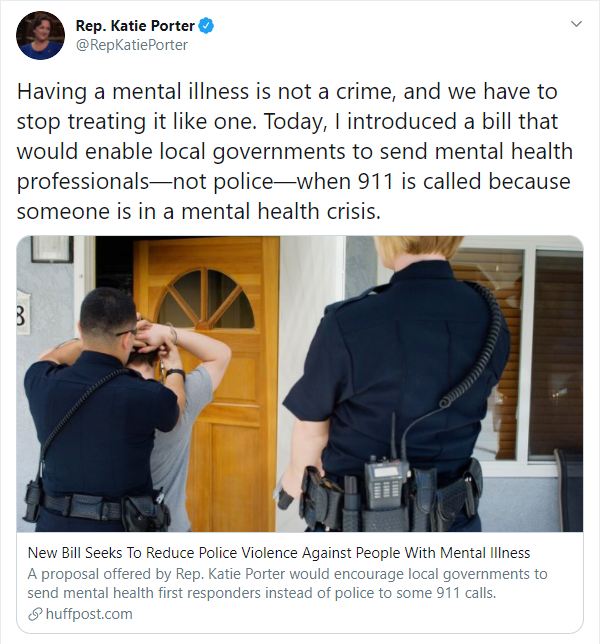Newsletters
My New Bill: The Mental Health Justice Act
Washington,
December 1, 2020
Dear friend, Throughout this summer, in the wake of the protests surrounding the deaths of George Floyd and Breonna Taylor, I met with and listened to those in our community who have been historically marginalized and faced discrimination, often due to the color of their skin. These conversations helped reinforce my understanding of the challenges we face when it comes to mental health, law enforcement, and policing in America. A recent study found that 1 in 4 fatal police encounters ends the life of an individual with severe mental illness. These violent and traumatic incidents are often the result of armed police officers responding to a 911 call involving an individual with untreated mental illness and lacking the experience, tools, and knowledge to respond. To address this tragic reality in our communities across America, we need mental health professionals, not armed police officers, to respond to these crisis situations. That is why I introduced the Mental Health Justice Act of 2020. The Mental Health Justice Act would enable local governments to send mental health professionals—instead of police—when 911 is called because someone is experiencing a mental health crisis. The bill would create a grant program to pay for hiring, training, salary, benefits, and additional expenses for mental health provider first responder units. Grant recipients will receive technical assistance from experts through the Disability Rights Section of the Civil Rights Division at the Department of Justice (DOJ) and from the Substance Abuse and Mental Health Services Administration (SAMHSA) to build out these programs.
This legislation would make our communities safer and build trust between police and the communities they serve. Having a mental illness or experiencing a mental health crisis should not be a crime or increase your likelihood of a fatal encounter with law enforcement. To keep our communities safe, it’s critical we connect those experiencing a mental health crisis with the appropriate responders, resources, and care. Too often, individuals with mental illness and intellectual and developmental disabilities are subject to unnecessary violence, or even death. Many are cycled in and out of our broken prison and justice system, when what they need is treatment and care. The Mental Health Justice Act would reduce the number of fatal police encounters in America, making our communities safer for all. Throughout my time in Congress, I have made improving mental health care a top priority. In June, I introduced the bipartisan Stopping the Mental Health Pandemic Act to help meet the skyrocketing demand for mental and behavioral health services during the coronavirus pandemic. I also co-led the Strengthening Behavioral Health Parity Act to hold insurance companies accountable for treating mental health care as equal to other types of medical care. The Mental Health Justice Act is a critical next step in this work. As your Representative, I have been a staunch advocate for making our country, and our community here in Orange County, safer and more equitable. I will continue working with my colleagues on both sides of the aisle to advance bills that will make these goals a reality.
Katie Porter Member of Congress |


